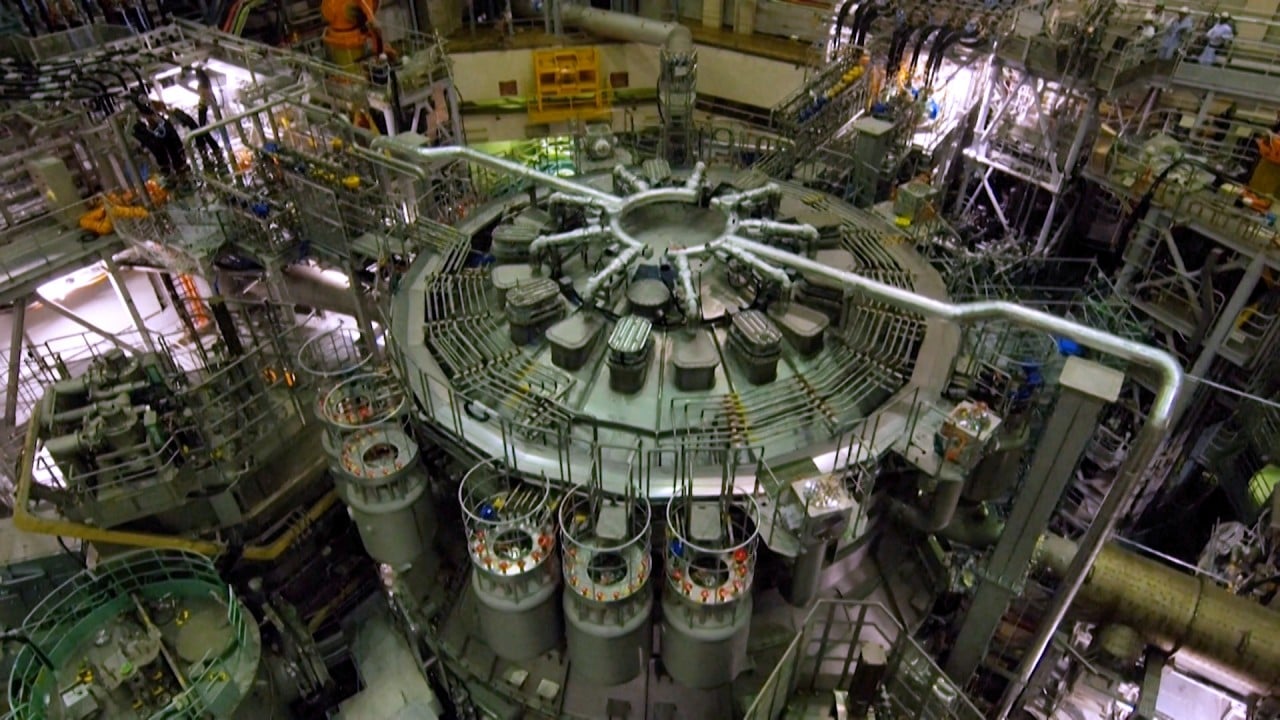The Asahi has conducted a similar poll every year since 2013. For many years, it showed a stable 30 per cent of people who favoured the plants coming back online while up to 60 per cent opposed. However, those figures shifted radically last year, with 51 per cent in favour and 42 per cent opposed.
The February survey, in contrast, indicates that just 35 per cent of the public still want the reactors to remain shut down.
‘Natural’ for Japan to play larger Aukus role, but likely not as partner
‘Natural’ for Japan to play larger Aukus role, but likely not as partner
“There are a number of reasons why opposition is falling but the major factor is the multibillion international campaign by the global nuclear energy industry to convince the world nuclear is the answer to global warming,” said Aileen Mioko Smith, an environmental campaigner with Kyoto-based Green Action Japan.
“The industry has been very successful in convincing ordinary people that nuclear energy is needed while the opponents have not been able to get the other side of the argument out,” she told This Week in Asia.
Smith insists that nuclear energy is far from the climate panacea that it is made out to be and that its drawbacks – including high costs and the obvious dangers in a country prone to natural disasters – are being glossed over.
“I also think these poll figures may be more positive because the operator of the Shika Nuclear Power Plant reported no problems after the Noto earthquake on January 1,” she said.
“If there had been an explosion or some other problem, then that would have reminded people of Fukushima,” she said. “But nothing happened and I think that a lot of people have decided that the plants are safe again.”
‘Inconvenient law’: can Japan’s married women finally keep their maiden names?
‘Inconvenient law’: can Japan’s married women finally keep their maiden names?
That overlooks the fact that both reactors at the Shika plant have been shut down since March 2011 and are being considered for decommissioning after fault lines were discovered beneath the reactors, Smith said. She also claimed that the operator of the plant has yet to release all the data about the impact of the magnitude-7.5 tremor on the plant last month.
Memories of the aftermath of the Fukushima disaster are also inevitably fading from the public’s consciousness, she said. At the same time, the Japanese media is being complicit in the government’s campaign to restart reactors and failing to pressure the authorities and operators on the security of their facilities, she added.
“And, of course, there is the problem of the price of fuel and everything else rising since the Ukraine war broke out, meaning that people are feeling the crunch of higher costs for travel or going to the supermarket,” Smith said.
“Those daily, more immediate concerns mean that people are more willing to think less about safety.”
Kanako Hosomura, a housewife from Yokohama, says she is “very unhappy” about the reactors restarting, but accepts that it may be a necessary evil.
“Instead, the government went back to what was easiest – oil and gas – and now they want the nuclear plants to start,” she said. “Things are more expensive now, but we had an opportunity in 2011 that we missed.”
Hosomura added that Japan should do more to cut its energy consumption, with the government providing subsidies for energy-saving schemes.
Ken Kato, a businessman from Tokyo who is firmly pro-nuclear energy, said electricity consumption will inevitably soar in the coming summer months and that nuclear energy is the only solution.
‘ATM’ for Ukraine? Some Japanese question Tokyo’s continued aid for Kyiv
‘ATM’ for Ukraine? Some Japanese question Tokyo’s continued aid for Kyiv
“We all understand that there is risk associated with nuclear power but the Japanese government and nuclear power plant operators have learned the lessons of Fukushima and these facilities are much safer than they were before,” he said.
“I would say that because of Fukushima, Japan has the safest nuclear industry in the world and that means restarting more reactors is a risk that we can take,” Kato added.
According to the Asahi poll, 64 per cent of men supported the restart of nuclear power plants, along with just 36 per cent of women. Young people were also more likely to favour a return to atomic energy, with 73 per cent of people aged between 18 and 29 backing the idea, while 50 per cent of those aged 70 and above were opposed.


